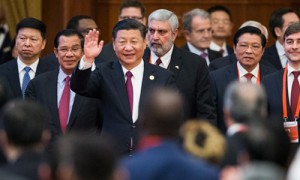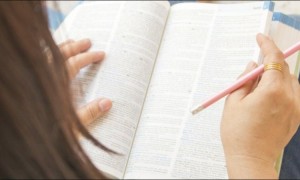促进女性享有和男性同等的实现自身发展潜力的机会,是促进社会发展、推动性别平等、实现人类可持续发展的重要条件。在这个过程中,教育的作用十分重要。
Peng Liyuan, the wife of President Xi Jinping, said the education of girls and women is a "noble and significant" pursuit.
Providing women and men with the same opportunities to reach their full potential is a key to promoting social development, gender equality and sustainable development of society, to which education plays a crucial role, Peng said.
Peng made the remarks during an exclusive interview with the UNESCO Courier magazine.
She was invited in 2014 to become the UNESCO special envoy for the advancement of girls' and women's education by Irina Bokova, the organization's director-general.
Peng said she recognized both the great honor and immense responsibilities when Bokova gave her the special envoy certificate in March 2014 at UNESCO's headquarters in Paris.
"Education equality includes equality for opportunity, process and results. What we fight for is to make sure that women have the same opportunities to go to school as their male counterparts, that they are treated equally in education and that they have the same access to higher education, employment and social recognition as men do," Peng said. "I would like to do whatever I can to reach this goal."
Peng said she has visited many schools, institutions for the young, and organizations for women's development in African and Asian countries during her more than two years of service as the special envoy. She hoped to get closer to the reality, learn from their wisdom and strength, and share experience.
The Chinese government has proposed and sponsored the establishment of the UNESCO Prize for Girls' and Women's Education, for individuals and organizations that contribute to that goal. Last year, Peng and Bokova jointly presented the awards to two winners from Indonesia and Zimbabwe at the first official ceremony in Beijing.
Peng said the award is the first of its kind and by far the only one like it under UNESCO. It aims to encourage more people to devote themselves to the education of girls and women by rewarding individuals and organizations that have made outstanding contributions in the area.
Peng said it is a basic national education policy in China to promote education equality and grant everyone with equal access to education. China ensures girls' and women's right for education via various means, such as laws and regulations, financial aid and free food for students in poverty.
Women in China have made noticeable progress in self-choice and in personal development, Peng said.
Meanwhile, China is actively trying to spread international cooperation and aid in education. In 2015, Xi said at the Global Leaders' Meeting on Gender Equality and Women's Empowerment at the United Nations headquarters in New York that the Chinese government will donate $10 million to the UN for the protection and enhancement of women's rights.
The Chinese government also has set up funds and awards at UNESCO to support developing countries in promoting literacy campaigns and teachers' training programs to facilitate education for girls and women.
Talking about teaching, Peng, who is a music professor, said a good teacher should be diligent and good at learning, should always have the drive and motivation for creativity, and should keep improving their abilities.
He or she should know how to use culture, aesthetics and arts to help students develop good personalities. They also should be an example for students to see what a kind and generous soul ought to be like, so the students can be better prepared for society, Peng said.
"I will carry out my duty as the special envoy to support UNESCO in improving education for girls and women all over the world. I will do whatever I can," Peng said.







